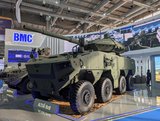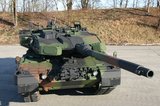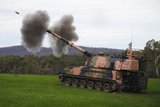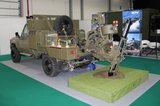Nexter to renovate French Leclerc tanks
Nexter Systems has been notified of a contract to renovate France's Leclerc tanks and DCL recovery vehicles, the French Defence Procurement Agency (DGA) said on 12 March.
This order is the third operation launched under the French Ministry of Defence's Scorpion programme, which aims to modernise the French Army's contact forces.
The $349.13 million contract will see the delivery of 200 renovated Leclerc tanks and 18 renovated DCL recovery vehicles from 2020. It also aims to maintain this renovated capacity beyond 2040.
The renovations will enable the Leclerc to use its mobility and firepower within the future Scorpion joint tactical groups. Specific interfaces have been developed for the new Contact tactical radio system and the Scorpion information and command system. These developments will enable the tanks to network with all components of the Scorpion joint tactical groups.
The Leclerc tank will also get specific armour kits to upgrade its protection and deal with improvised explosive devices and other new threats. The third-generation tank developed by Nexter Systems gives the French land forces first entry capability in an international coalition.
Related Equipment in Defence Insight
More from Land Warfare
-
![US Army plans Q2 prototype proposal request for its Mobile Tactical Cannon programme]()
US Army plans Q2 prototype proposal request for its Mobile Tactical Cannon programme
The US Army is seeking a mature 155mm, wheeled, self-propelled capability to replace the towed M777 howitzer in the Stryker, Mobile and Infantry Brigade Combat Teams as it targets a potential 498-unit acquisition goal.
-
![British Army’s Project Stokes 120mm mortar bids due in March 2026]()
British Army’s Project Stokes 120mm mortar bids due in March 2026
Project Stokes could see a new 120mm mortar capability enter British service, with domestic production and international partnerships central to competing bids.
-
![MKJ Warrior Series — The Nett Warrior Qualified Connector for Today’s Soldier Systems]()
MKJ Warrior Series — The Nett Warrior Qualified Connector for Today’s Soldier Systems
ITT Cannon’s MKJ Warrior connectors are designed for the harshest environments, delivering mission critical comms, navigation and USB data/power.





















